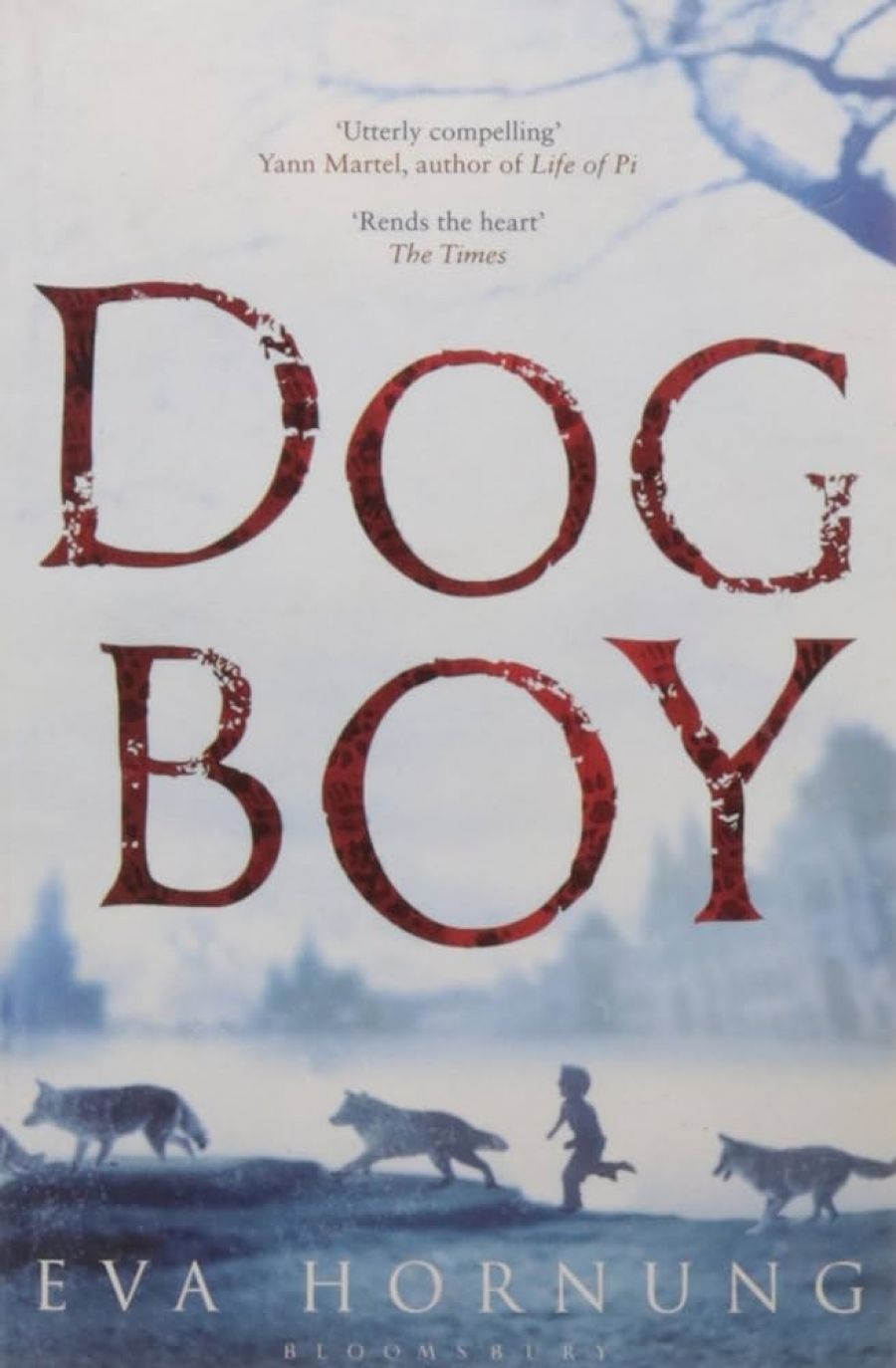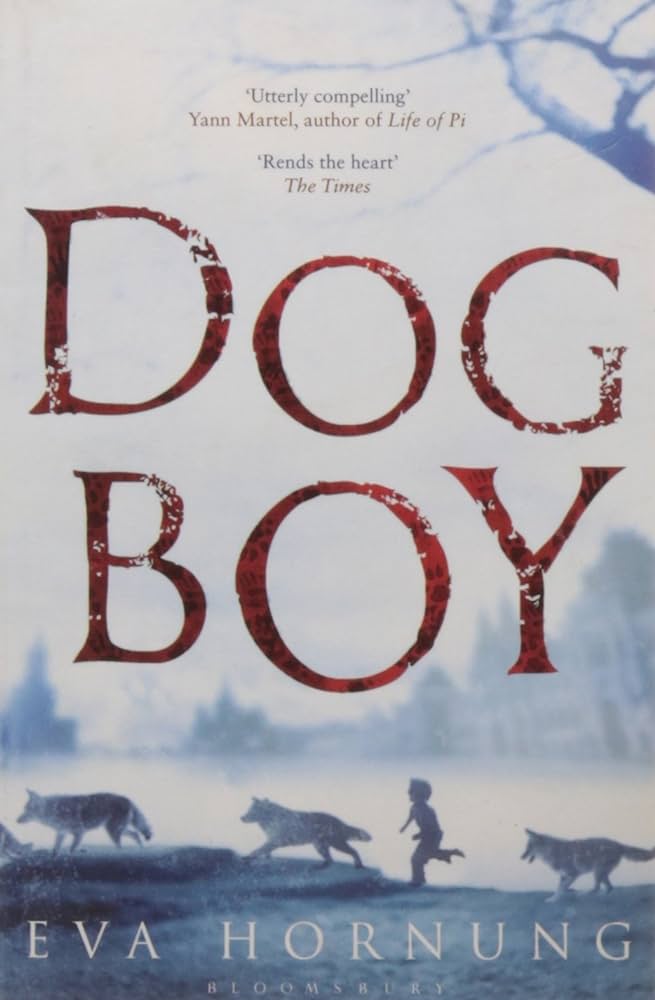
- Free Article: No
- Contents Category: Australian Fiction
- Review Article: Yes
- Article Title: Standing on its own hind legs
- Online Only: No
- Custom Highlight Text:
Writing as Eva Sallis, Eva Hornung earned enough prizes and shortlistings to send a reviewer sprinting shame-faced to the nearest library. Fortunately, Joyce Carol Oates, with her inordinately prodigious output, sees no grounds for guilt: ‘Each book is a world unto itself, and must stand alone and it should not matter whether a book is a writer’s first, or tenth, or fiftieth.’ Thus, while a predilection for wild life might be deduced from some of Sallis-Hornung’s previous titles (The City of Sea-lions, 2002, The Marshbirds, 2005) and an Arabic orientation from others (Hiam, 1998, Sheherazade through the Looking Glass, 1999), Dogboy, which is set in Moscow, begs to stand on its own hind legs.
- Book 1 Title: Dogboy
- Book 1 Biblio: Text, $32.95 pb, 293 pp
- Book 1 Cover Small (400 x 600):

- Book 1 Cover (800 x 1200):

Hornung’s dogboy is also called Roman; however, as Russians are addicted to diminutives, he is known as Romochka. At the age of four, Romochka wakes to find his mother and uncle gone, the power off, and his whole building deserted. Out in the street, starving and frozen, he notices a trotting yellow dog and remembers that dogs emanate warmth; encouraged, he follows her. Thus begins his life in a lair inhabited by the yellow bitch, whom he calls, as he did his human mother, Mamochka, two adolescents, Black Dog and Golden Bitch, and four new puppies. Like Brown Brother, Black Sister, Grey Brother and White Sister, Romochka guzzles gratefully on Mamochka’s warm, sweet milk; afterwards, he cuddles up to White Sister, his favourite. He feels like a fifth puppy, but knows that there is at least one difference: he can stroke Mamochka as he drinks.
Over a couple of years, Romochka is initiated into dog-lore: how to hunt and bring home rats, birds and dirty loaves for them all to eat; what useful purposes to put his pee to; how to run as swiftly as his brothers and sisters. He also learns that all people are dangerous. While the whole novel is beautifully written, this first section is a fascinating combination of dedicated research (as when Mamochka and Black Dog mate for two days without rest) and meticulous imagining (on summer nights, all the dog clans on the rubbish mountain where they live go out and sing to each other). Yet you know it is no idyll. When and by what will Romochka’s precarious haven be threatened?
False alarms occur but are defused, as when a couple of bomzhi try to take over the lair (situated in a cellar below an abandoned church); and there are pleasant surprises, as when Romochka, riding the Metro, finds a restaurant where a lady gives him and all the dogs bowls of pasta. Then, suddenly, the narrative swerves. All the attention is on a second, much smaller child brought home by Mamochka. Romochka calls him Puppy, and feels responsible for him. The tragedy we have been dreading begins when Puppy disappears and Romochka searches him out in a psychological institute for homeless children. Romochka becomes enmeshed with humans, notably the Director and his wife (Dmitri and Natalya) who need him less for behavioural experimentation and study – the fate of Puppy, rechristened Marko – than as a bargaining chip in their own relationship.
At this point, the dénouement must be left to the reader, while the reviewer turns to appraisal. The outstanding, entertaining and revelatory hypertextual moment is an entry in Natalya’s casebook, when human logic leads her straight to a plausible but entirely counterfactual conclusion: Romochka and Puppy (‘a pet name’) are defined as brothers brought up in a family which had many dogs. ‘No father in the picture; mother working very long hours, leaving the boys with the dogs ... then at some point, Mum disappeared ... They are not really dogboys, just from a family that understood dogs well, and then had to fend for themselves with only the dogs for company ... Good to have got to the bottom of all this,’ she congratulates herself. One is reminded of the saccharine pantomime interpretations of Nana in Peter Pan and Wendy, when J.M. Barrie’s intention was in fact to castigate Victorian parents who abandoned their children to the care of disciplinarian nannies. They would be better off left with the family dog!
There is, however, one recurring, linguistic wobble in this absorbing story. Would a boy with no human contact since the age of four use the casual ‘That’s it’ to describe the extent of his ‘family’? Could he articulate the following: ‘Brave little doggie. You fought the monster even though he was as big as a Stranger and you were small’? Or know the phrase ‘snug as a bug in a rug’? These are small hiccups in a narrative which is otherwise meticulously grounded in its own world, but they do show that language can trip us all up – if we are human.


Comments powered by CComment